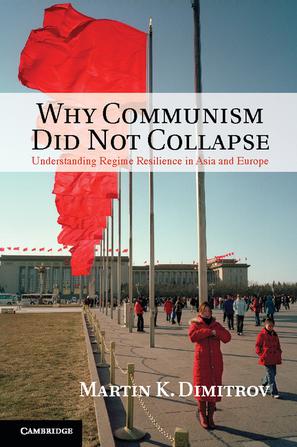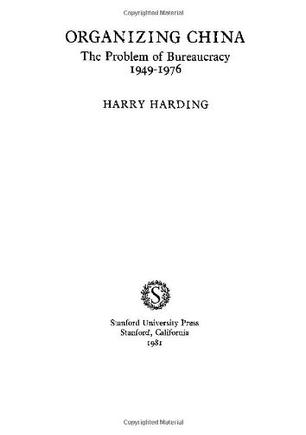-

Chinese Politics
Written by a team of leading China scholars this text interrogates the dynamics of state power and legitimation in 21st Century China. Despite the continuing economic successes and rising international prestige of China there has been increasing social protests over corruption, land seizures, environmental concerns, and homeowner movements. Such political contestation presents an opportunity to explore the changes occurring in China today – what are the goals of political contestation, how are Chinese Communist Party leaders legitimizing their rule, who are the specific actors involved in contesting state legitimacy today and what are the implications of changing state-society relations for the future viability of the People’s Republic? Key subjects covered include: the legitimacy of the Communist Party internet censorship ethnic resistance rural and urban contention nationalism youth culture labour relations. Chinese Politics is an essential read for all students and scholars of contemporary China as well as those interested in the dynamics of political and social change. -

Why Communism Did Not Collapse
This volume brings together a distinguished group of scholars working to address the puzzling durability of communist autocracies in Eastern Europe and Asia, which are the longest-lasting type of nondemocratic regime to emerge after World War I. The volume conceptualizes the communist universe as consisting of the ten regimes in Eastern Europe and Mongolia that eventually collapsed in 1989–91, and the five regimes that survived the fall of the Berlin Wall: China, Vietnam, Laos, North Korea, and Cuba. Taken together, the essays offer a theoretical argument that emphasizes the importance of institutional adaptations as a foundation of communist resilience. In particular, the contributors focus on four adaptations: of the economy, of ideology, of the mechanisms for inclusion of potential rivals, and of the institutions of vertical and horizontal accountability. The volume argues that when regimes are no longer able to implement adaptive change, contingent leadership choices and contagion dynamics make collapse more likely. By conducting systematic paired comparisons of the European and Asian cases and by developing arguments that encompass both collapse and resilience, the volume offers a new methodological approach for studying communist autocracies. Offers a new theoretical explanation of the resilience of communist autocracies that emphasizes the structural conditions under which these regimes are able to implement adaptive change Offers a new methodological approach for studying communist autocracies by conducting paired comparisons between the ten regimes that eventually collapsed in 1989�91 and the five regimes that survived past 1989: China, Vietnam, Laos, North Korea, and Cuba Makes a major empirical contribution to our knowledge of how communist autocracies function by: 1) adopting a global perspective onto the phenomenon of global communism; 2) analyzing unfamiliar adaptations, such as the development of institutions of accountability; and 3) using new evidence to challenge existing interpretations of communist durability (especially for countries like China, Vietnam, and North Korea) and of the eventual collapse of communist regimes in Eastern Europe and in Mongolia -

Transitions and Non-Transitions from Communism
Since the fall of the Berlin Wall, many scholars have sought to explain the collapse of communism. Yet, more than two decades on, communist regimes continue to rule in a diverse set of countries including China, Cuba, North Korea, and Vietnam. In a unique study of fourteen countries, Steven Saxonberg explores the reasons for the survival of some communist regimes while others fell. He also shows why the process of collapse differed among communist-led regimes in Europe, Africa, and Latin America. Based on the analysis of the different processes of collapse that has already taken place, and taking into account the special characteristics of the remaining communist regimes, 'Transitions and Non-Transitions from Communism' discusses the future prospects for the survival of the regimes in China, Cuba, North Korea, and Vietnam. 1 Examines why some communist regimes have survived whilst others have fallen 2 Compares cases of transition from communism with cases of non-transition across fourteen countries 3 Incorporates theories of social movements and explains the development of opposition across countries and regions -

Peasant Nationalism and Communist Power
-

Organizing China
-

Democratization in China and Taiwan